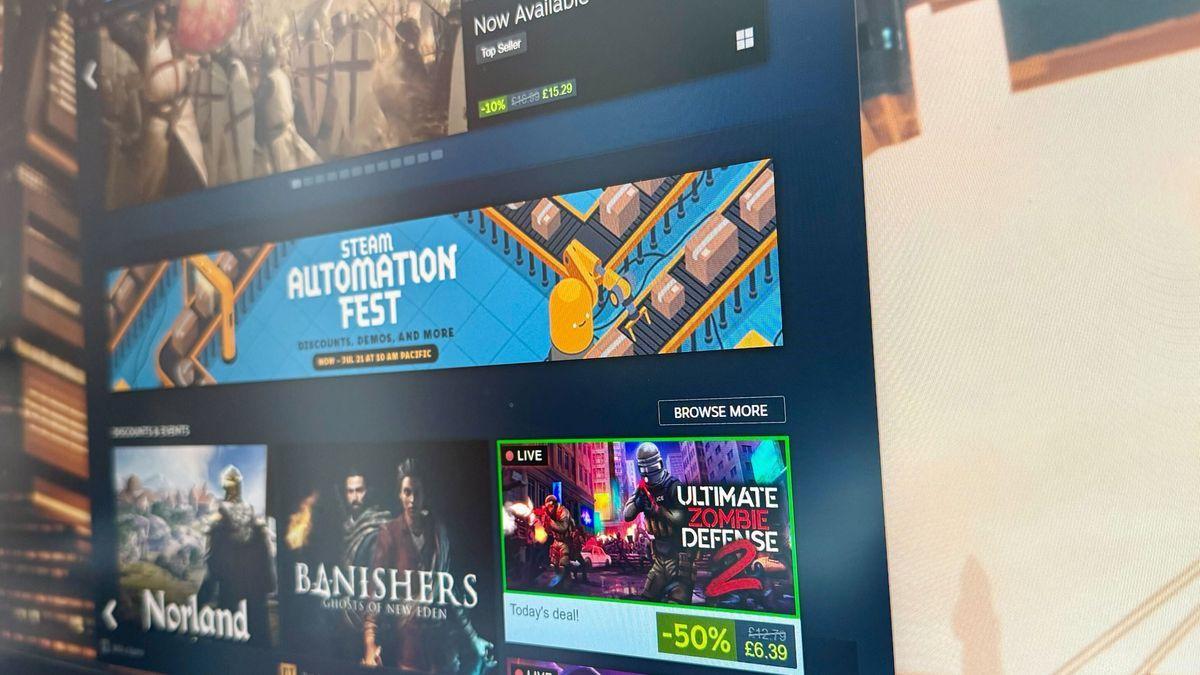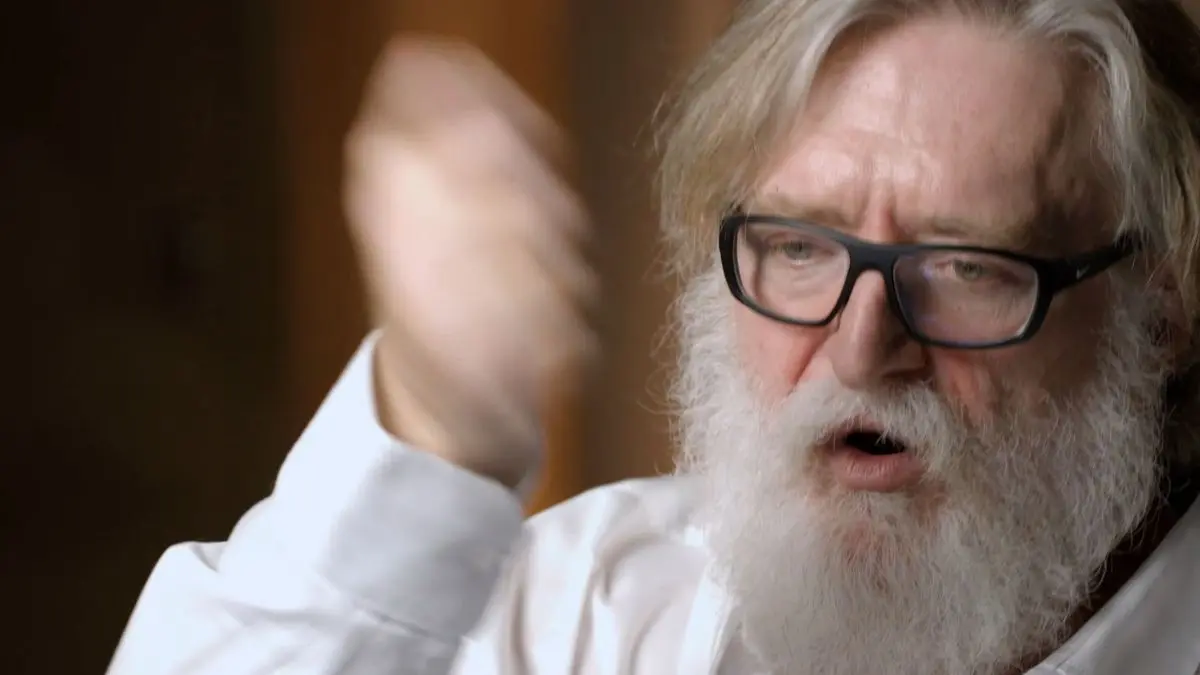Valve Engineer Uses ChatGPT to Improve Deadlock's Matchmaking Algorithm
3 Sources
3 Sources
[1]
Valve is using ChatGPT to help develop its new multiplayer shooter Deadlock
Valve's Deadlock is currently listed as being in 'early development'; however, it's one of the most popular games on Steam. Deadlock blends hero-shooter elements from games like Team Fortress 2 and Overwatch with the lane-based action of a MOBA like DOTA 2. It's a mix of styles and mechanics that feels familiar and fresh, so it's not out-of-step to say that Deadlock is shaping up to be another hit from a studio that releases very few games. Valve is no stranger to multiple games or shooters; Deadlock is a third-person shooter with several decades of running servers and handling matchmaking for some of the most beloved PC games ever made. So you might think this would be one side of Deadlock that it wouldn't need any outside help to sort out. Especially not ChatGPT. ChatGPT is becoming an invaluable tool for many, and Valve engineer Fletcher Dunn used the generative AI chatbot to help out with Deadlock's matchmaking system. As detailed in his post on X, Fletcher described a hypothetical matchmaking algorithm that would solve what he and the team were looking for. ChatGPT not only understood the hypothetical scenario but also provided a solution - something called the Hungarian algorithm. And with that, Deadlock's matchmaking and hero selection to the Hungarian algorithm. This is an excellent example of a game developer using generative AI to find a solution to complex problems quickly and cost-effectively. Fletcher isn't alone either; it's estimated that one in three gamer developers, programmers, and engineers uses generative AI. Whether that's as a tool to find the most suitable algorithm for multiplayer matchmaking or creating a digital human that players can interact with, AI is already significantly impacting how games are made.
[2]
A Valve engineer used ChatGPT to find a new matchmaking algorithm for Deadlock, and now it's in the game
Valve is one of many developers using generative AI behind the scenes. A survey taken late last year found that 31% of game developers were already using generative AI in some way. I'd wager that the percentage has increased significantly since then. We know Valve is using it: Fletcher Dunn, an engineer who's been with Valve for over a decade, has been posting his "ChatGPT wins" on X, saying today that OpenAI's large language model is an "amazing" tool. Dunn is more or less using ChatGPT as an advanced search engine, and the interaction that amazed him recently saw him describe a hypothetical kind of algorithm he wanted to use for Valve's MOBA-shooter, Deadlock, and receive an accurate recommendation for a real algorithm matching his specifications. The algorithm ChatGPT recommended is in fact now being used in Deadlock matchmaking, according to Dunn. "I'm gonna keep posting my ChatGPT wins, because this thing keeps blowing my mind, and I think there are some skeptics who don't get how amazing this tool is," he wrote. "A few days ago we switched Deadlock's matchmaking hero selection to the Hungarian algorithm. I found it using ChatGPT." Dunn acknowledges that he could have found the same answer with the right Google search terms, but says that the point is that he didn't have to: ChatGPT immediately returned what he was looking for even though he described it vaguely. "'Find me this thing that I don't really know the right search terms for, but I will attempt to describe' is just a *killer* app," he said in a reply to another poster. "If it is wrong or hallucinates (which does sometimes happen), you'll figure that out pretty quickly." This use of ChatGPT reinforces something I suspected when I covered that survey back in January: That scattered instances of generative AI being used to create final videogame art or replace voice actors are really the tip of the iceberg. Mostly, I think developers are using generative AI in ways we aren't going to see directly, such as by using ChatGPT as a search engine, or to write code, or as an administrative tool, or by using image generators during the concept stages. In January, Steam added a rule that developers must disclose generative AI use when they submit their games, and most of that information is displayed to consumers on store pages. None of Valve's own games feature Steam generative AI disclosures, Deadlock included. Using ChatGPT as a natural language search engine arguably doesn't count as the kind of thing that needs disclosing, though Valve's rules call for developers to tell it about "any kind of content (art/code/sound/etc) created with the help of AI tools during development." Dunn isn't sure whether ChatGPT will remain as useful as he finds it now. In early September, he predicted that we're in "a ChatGPT golden age," and that the LLM's capabilities will go downhill as training data is lost to copyright challenges or becomes polluted by its own output. For now, though, Dunn says that he permanently keeps ChatGPT open in a Chrome tab. "I am kind of conflicted because it is often replacing asking the question to another human IRL, or at least tweeting it out to the virtual braintrust," he said. "I guess this is good (the whole point?), but it's just another way for computers to replace human interaction." ChatGPT maker OpenAI just raised an incredible $6.6 billion in a new funding round as it, as AP reports, turns further toward profit-making. The company claims that its new ChatGPT o1 model is capable of "reasoning" through problems.
[3]
Deadlock's new matchmaking algorithm was recommended to Valve by AI: "I found it using ChatGPT"
"I'm gonna keep posting my ChatGPT wins, because this thing keeps blowing my mind" A Valve engineer cracked Deadlock's new matchmaking algorithm after it was suggested to him in an interaction with the AI software ChatGPT. First spotted by PC Gamer, veteran Valve engineer Fletcher Dunn shared on Twitter that he's been using ChatGPT, essentially, as an advanced search engine. Dunn revealed that Valve changed its in-beta online MOBA/hero shooter hybrid Deadlock's matchmaking algorithm a few days ago after he asked ChatGPT to recommend him a new one. "I'm gonna keep posting my ChatGPT wins, because this thing keeps blowing my mind, and I think there are some skeptics who don't get how amazing this tool is," he wrote. "A few days ago we switched Deadlock's matchmaking hero selection to the Hungarian algorithm. I found it using ChatGPT." All of the depressing implications of AI aside, there's no denying the complexity and nuance of its response to Dunn's question in this instance. Dunn asked the software to find him "a bipartite matching algorithm where one side expressed preferences in terms of a score," and well, it found one, and it's in Deadlock now. "'Find me this thing that I don't really know the right search terms for, but I will attempt to describe' is just a *killer* app," he said in response to a commenter. "If it is wrong or hallucinates (which does sometimes happen), you'll figure that out pretty quickly." Could Dunn have found the solution to his matchmaking woes with good ol' Google Search? Probably, as he acknowledged in a follow-up tweet, but he would've had to come up with the right Google search terms instead of simply asking ChatGPT in normal, everyday (for game engineers) language. "If you nitpick how I described the problem, or say I could also find this using Google search by entering the right search terms: you are missing the point, which is that on my very first crude attempt, it understood what I was trying to say and took me instantly to the answer," he said. As PC Gamer pointed out, Dunn recently predicted we're in a "ChatGPT golden age" and that we'll look back on its usefulness five years from now "fondly." "Sort of like how we look back on the golden age of Google search, when it was actually useful," he said in a September 8 tweet. "Before SEO and bots won the war, and everything became ads, click-bait, fake forums, etc."
Share
Share
Copy Link
Valve engineer Fletcher Dunn reveals how ChatGPT helped find an efficient matchmaking algorithm for their new multiplayer shooter, Deadlock. This highlights the growing use of AI tools in game development.

Valve's New Game Deadlock
Valve, the renowned game developer, is currently working on a new multiplayer shooter called Deadlock
1
. The game, still in early development, blends elements from hero-shooters like Team Fortress 2 and Overwatch with lane-based action reminiscent of MOBAs such as DOTA 2. Despite its early stage, Deadlock has already gained significant popularity on Steam.ChatGPT's Role in Game Development
Fletcher Dunn, a veteran Valve engineer, has been utilizing ChatGPT, an AI language model, as an advanced search engine to solve complex problems in game development
2
. Dunn recently shared on social media that ChatGPT played a crucial role in finding an efficient matchmaking algorithm for Deadlock.The Hungarian Algorithm Implementation
Dunn described a hypothetical matchmaking algorithm to ChatGPT, which promptly recommended the Hungarian algorithm
3
. This algorithm has since been implemented in Deadlock's matchmaking and hero selection system. Dunn praised ChatGPT's ability to understand vague descriptions and provide accurate solutions, stating, "Find me this thing that I don't really know the right search terms for, but I will attempt to describe' is just a killer app"2
.AI in Game Development
This incident highlights the growing trend of using AI tools in game development. A recent survey found that 31% of game developers were already using generative AI in some capacity, with the percentage likely to have increased since then
2
. AI is being employed in various aspects of game creation, from finding algorithms to creating digital characters.Implications and Concerns
While the use of AI tools like ChatGPT can lead to more efficient problem-solving in game development, it also raises questions about the future of human interaction in the process. Dunn expressed some confliction, noting that AI is "often replacing asking the question to another human IRL, or at least tweeting it out to the virtual braintrust"
2
.Related Stories
The Future of AI in Gaming
As companies like OpenAI continue to develop more advanced AI models, the role of artificial intelligence in game development is likely to expand
2
. However, Dunn predicts that we may be in a "ChatGPT golden age," suggesting that the tool's usefulness might decline in the future due to challenges such as copyright issues and data pollution3
.Disclosure and Transparency
Steam now requires developers to disclose their use of generative AI in game development. However, Valve's games, including Deadlock, do not currently feature such disclosures on their store pages
2
. This raises questions about the extent to which AI involvement in game development should be communicated to consumers.References
Summarized by
Navi
[2]
Related Stories
Generative AI Usage in Steam Games Surges by 700% in 2025, Raising Concerns and Opportunities
17 Jul 2025•Technology

Generative AI in Gaming: Developers and Industry Veterans Weigh In on Its Potential and Challenges
16 Oct 2024•Technology

Gabe Newell Predicts AI as Game-Changer in Programming and Business
19 Jul 2025•Technology

Recent Highlights
1
Pentagon threatens Anthropic with Defense Production Act over AI military use restrictions
Policy and Regulation

2
Google Gemini 3.1 Pro doubles reasoning score, beats rivals in key AI benchmarks
Technology

3
Anthropic accuses Chinese AI labs of stealing Claude through 24,000 fake accounts
Policy and Regulation





